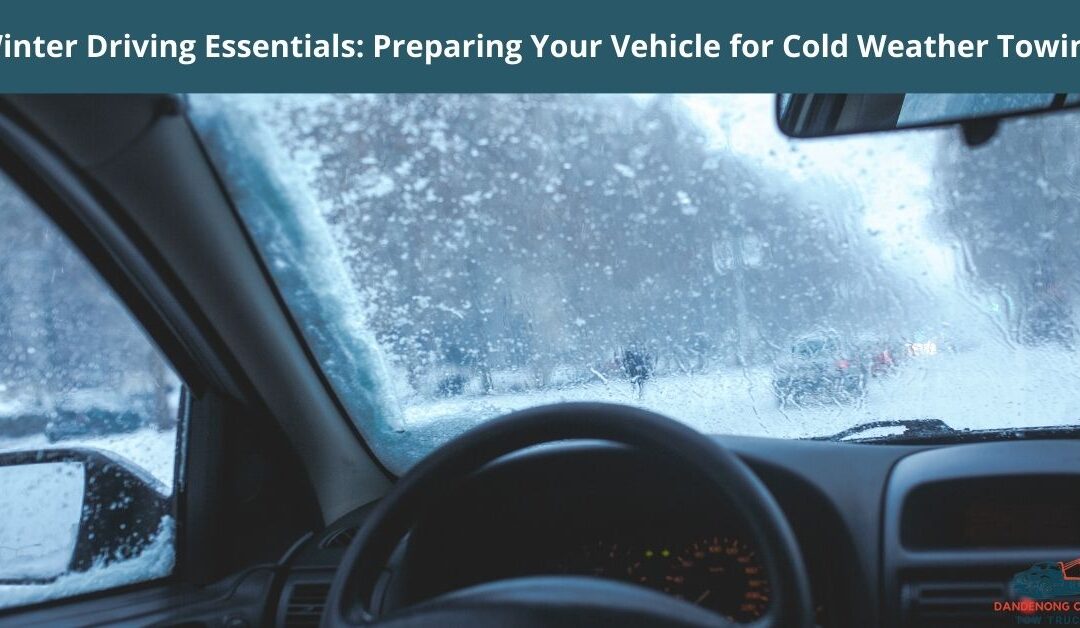Winter brings picturesque snowy landscapes, but it also ushers in challenging driving conditions, especially for those towing vehicles in cold weather. As temperatures drop, it’s essential to take proactive steps to prepare your vehicle for winter towing. In this guide, we’ll explore the winter driving essentials that will help ensure safety, reliability, and peace of mind during your cold-weather towing adventures.
Check Your Battery:
Cold weather can significantly impact your vehicle’s battery performance. Ensure your battery is in good condition by checking its charge level, cleaning terminals of corrosion, and replacing old batteries before they become unreliable. A fully charged and well-maintained battery is crucial for a successful cold-weather towing experience.
Use Cold-Weather Engine Oil:
Switch to a winter-grade engine oil with a lower viscosity. Cold temperatures can cause standard engine oil to thicken, making it harder for your engine to start. Winter-grade oil flows more easily in cold weather, ensuring proper lubrication and smooth engine performance during towing.
Inspect the Cooling System:
Ensure your vehicle’s cooling system is in optimal condition. Check the coolant level, concentration, and condition to prevent freezing. Consider using a coolant with a lower freezing point to safeguard your engine against the harsh winter temperatures.
Verify Tire Condition and Pressure:
Winter towing demands proper tire maintenance. Inspect your tires for adequate tread depth, and consider switching to winter tires designed for improved traction on snow and ice. Maintain the recommended tire pressure, as cold weather can cause tire pressure to drop, affecting stability and fuel efficiency.
Equip Snow Chains or Winter Tires:
Depending on the severity of winter conditions in your area, consider equipping snow chains or investing in winter tires designed for enhanced traction on icy or snowy roads. These additions can significantly improve your vehicle’s grip and control during towing.
Examine the Braking System:
Ensure your vehicle’s braking system is in top-notch condition. Check brake fluid levels, inspect brake pads and rotors for wear, and address any issues promptly. Efficient brakes are crucial for safe towing, especially in slippery winter conditions.
Carry Emergency Supplies:
Prepare for unforeseen circumstances by packing an emergency kit. Include essentials such as a blanket, flashlight, extra winter clothing, non-perishable snacks, and a first aid kit. Also, keep towing-specific tools, such as tire chains, in your vehicle for added preparedness.
Keep Fuel Tank Full:
Maintain a full tank of fuel during winter towing. A full tank reduces the risk of condensation forming in the fuel lines and helps ensure you have ample fuel for heating if you encounter unexpected delays or need to keep warm during a breakdown.
Test Your Lights:
Ensure all vehicle lights are in working order, including headlights, brake lights, and turn signals. Winter days are shorter, and visibility can be challenging, so having properly functioning lights is crucial for your safety and the safety of other drivers on the road.
Monitor Weather Conditions:
Stay informed about the weather forecast along your route. If severe weather is expected, consider delaying your trip or taking alternative routes with better road conditions. Planning ahead and adjusting your travel plans can help you avoid potential hazards.
Conclusion:
Winter towing requires careful preparation to ensure a safe and trouble-free journey. By addressing these winter driving essentials, you’ll equip your vehicle to handle the challenges posed by cold weather and winter road conditions. Stay vigilant, plan ahead, and prioritize safety to make your cold-weather towing experiences both enjoyable and secure.
If you are in Endeavour Hills, Victoria 3802, and looking for a car removal service, this is the best way to visit us.
Contact Us
Dandenong Casey Tow Trucks
50 Fitzgerald Road
Hallam VIC 3803
(03) 7042 2011


Recent Comments